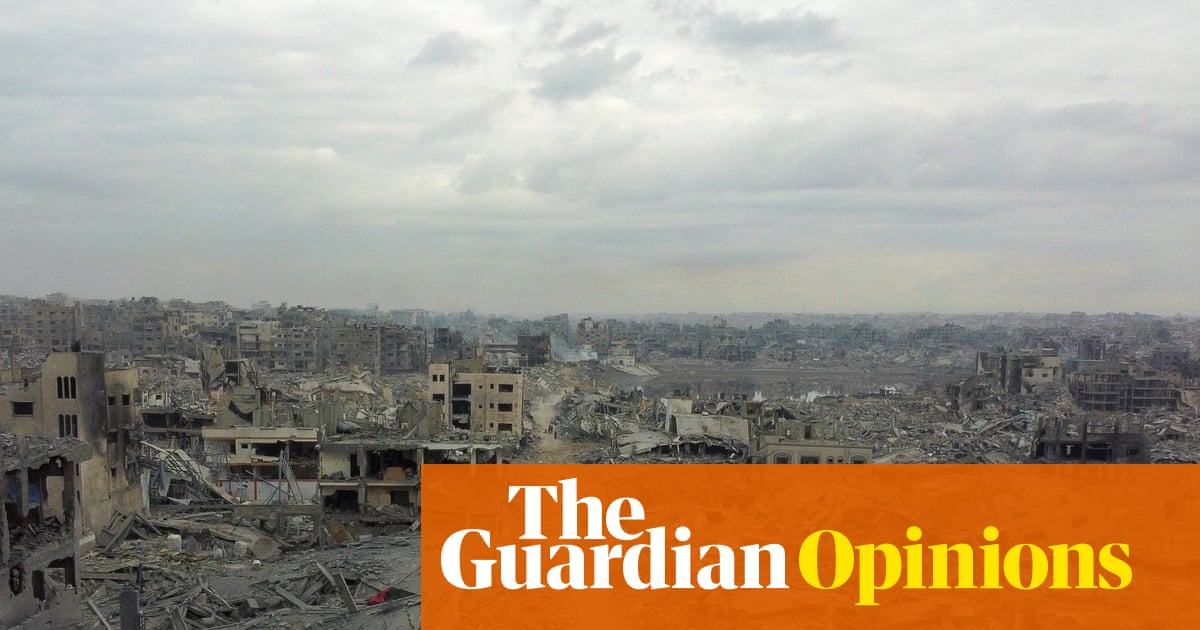The Israeli embassy in Washington has been circulating a letter on Capitol Hill defending its nine-month detention of a 16-year-old US citizen in military prison as pressure mounts from senators and civil society groups who have called for his release.
The document, obtained by the Guardian, describes Israel’s allegations against Mohammed Ibrahim and the medical treatment he has allegedly received in prison. It does not mention his dramatic weight loss or the fact that his family has had virtually no contact with him since his arrest in February.
Ibrahim, a dual Palestinian American teenager from Florida, has been charged with two counts of throwing objects at moving vehicles.
It’s unclear how many congressional offices the letter had reached, but comes after 27 Democratic lawmakers last month wrote to Marco Rubio, the secretary of state, and to the US ambassador to Israel expressing “grave concern” over Ibrahim’s treatment. The letter also circulated ahead of a scheduled 9 November court hearing in Ibrahim case, which has been postponed to mid-December.
The Israeli embassy did not respond to questions about the letter.
The embassy letter asserts that Ibrahim “threw rocks at vehicles belonging to Israeli citizens” and cites his confession during interrogation the night of his arrest on 16 February. The document does not mention that Ibrahim later wrote in a sworn affidavit: “The interrogator threatened that if I did not comply, he would instruct the soldiers to beat me. Out of sheer fear, I ultimately confessed.”
No lawyer or legal guardian appeared to be present, according to a video of the interrogation seen by the Guardian in July.
“As is often the case with information from the Netanyahu government, this letter deals in half-truths and is missing critical facts,” said Chris Van Hollen, a US senator from Maryland. “It must be the priority of the US government to secure the release of this American boy.”
The embassy claims Ibrahim “has been under weekly BMI monitoring”; has been examined by doctors 10 times; and was treated for scabies. A prison medical report on 22 April recorded him as having “low BMI” after losing roughly a quarter of his body weight, according to the family.
Ibrahim’s family has said they have had no direct contact with him since his detention began.
The Guardian was first to report on Ibrahim’s detention and condition in mid-July, and later that month reported new details about his double-digit weight loss and scabies diagnosis, which were revealed through state department correspondence, appeals to congressional representatives and family interviews. In August, more than 100 US human rights, faith-based and civil rights organizations sent a letter to Rubio demanding Ibrahim’s immediate release.
In their letter, the lawmakers demanded a response by 3 November detailing what efforts the Trump administration has made to secure his release, and noted that “no evidence has been publicly provided” to support the rock-throwing allegations.
The Israeli embassy letter states that court delays have occurred because Ibrahim’s defense attorney requested time to negotiate a plea agreement with prosecutors, while the family said in a statement to the Guardian they “hired a new lawyer as show of good faith” who needs proper time to review nine months of detainment. An Israeli official separately told the Guardian that “the defense hasn’t been engaging at all, but instead has been running a political pressure campaign on the Israeli government”.
The document confirms Ibrahim has been held in military detention without a completed trial for nine months. He was initially detained at Megiddo Prison before being transferred to Ofer Prison in August. Israeli media reported in 2011 that 99.74% of military court cases end in conviction.
Israel is the only country in the world that systematically prosecutes children in military courts, according to a Unicef report from 2013.
The embassy letter notes that Ibrahim’s father attended two court hearings, one via video conference and one in person, and that a US consular official visited Ibrahim on 4 August. It also states that “the current emergency directive stipulates that there are no family visits for security prisoners”.
The state department has appointed a dedicated official to handle Ibrahim’s case, the Guardian learned in September.
“The state department is tracking Mr Ibrahim’s case closely and working with the government of Israel on this case,” a department spokesperson told the Guardian. “The ambassador and the Embassy Jerusalem staff have been deeply involved in working on this case and continue to do so.”

 2 months ago
61
2 months ago
61

















































